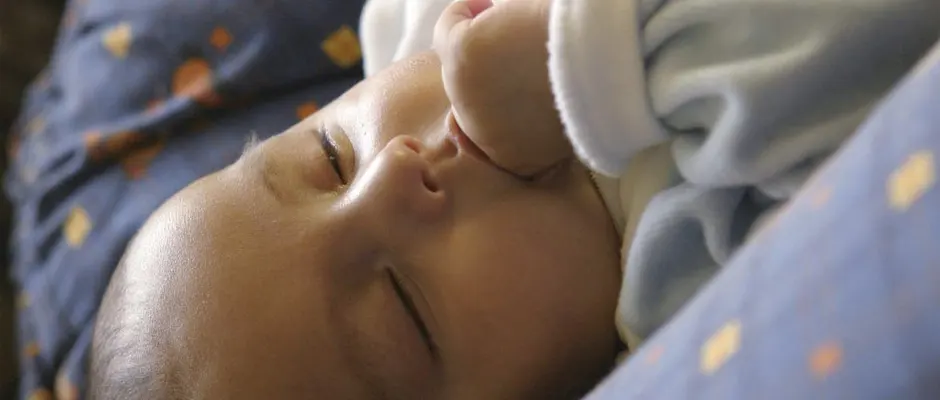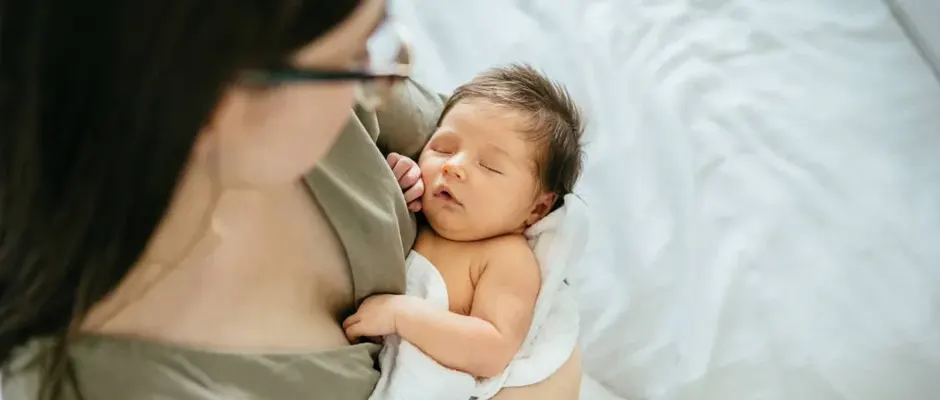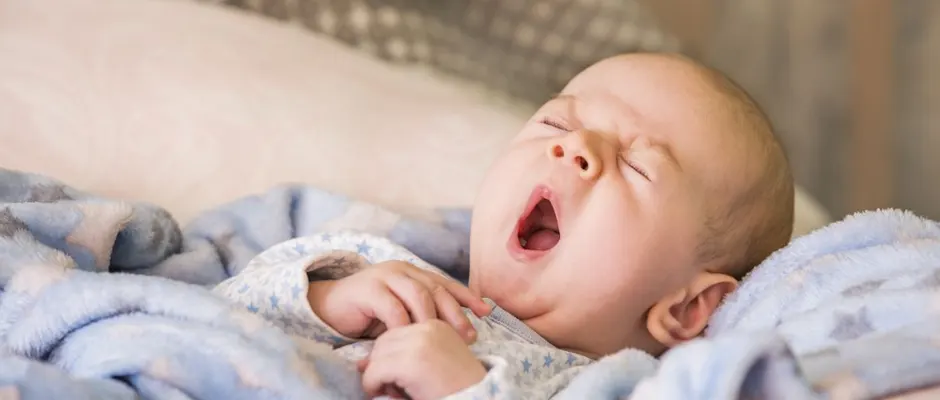Becoming parents for the first time is a wonderful experience, but it can also be challenging. One of the biggest challenges is getting your newborn to sleep. Many babies don’t seem to follow a clear pattern, which can cause tiredness, anxiety, and frustration for parents. The good news is that, even though newborns don’t have set routines, there are newborn sleep training tips that can help you establish healthy habits from the early months.
In this guide, you’ll find practical, evidence-based tips tailored to the realities of Los Angeles, London, Toronto, Sydney, and Melbourne. Each city has its own climate and lifestyle, which directly influences how babies sleep and how parents can help them.
Understanding newborn sleep
Before discussing training techniques, it is important to understand how babies sleep in their first months of life.
Hours of sleep in newborns
- A newborn sleeps between 14 and 17 hours a day, spread out in 2- to 4-hour naps.
- They do not differentiate between day and night until 8-12 weeks of age, as their production of melatonin (the sleep hormone) is not yet regulated.
- It is normal for them to wake up several times to feed.
Stages of sleep
Newborns have more phases of light sleep than adults:
- REM (active) sleep: where the baby can move their eyes and make small gestures.
- Non-REM (deep) sleep: where they rest and grow.
Babies spend more time in the REM phase, which explains why they wake up frequently
Difference between “sleep learning” and “sleep training”
- Sleep learning: from the first few months, babies begin to learn basic sleep routines with the help of their parents.
- Sleep training: this is usually applied later (from 4–6 months), with more structured methods to teach them to sleep independently.
In the first few months, it is not about forcing schedules, but about creating a safe environment and healthy routines that will gradually teach the baby to sleep better.

General sleep training tips
Here are the most effective and natural newborn sleep training tips:
1. Establish a consistent routine
Babies respond very well to repetition. A simple nighttime routine helps them recognize when it’s time to sleep:
- A warm bath.
- A gentle massage.
- Soft lighting and relaxing music.
- Feeding before bedtime.
Over time, these steps become clear signals for the baby.
2. Create a suitable environment
- Dark room with blackout curtains.
- Ideal temperature: 68–72°F (20–22°C).
- Silence or soft white noise.
- Safe crib, without loose pillows, stuffed animals, or blankets.
3. Put your baby to bed sleepy but awake
A common mistake is to wait until your baby is fast asleep before putting them in their crib. This causes them to cry when they wake up because they don’t recognize their surroundings. The ideal thing is to put them in their crib when they are sleepy but still conscious, so that they learn to fall asleep on their own.
4. Avoid overstimulation
Before bedtime, avoid screens, intense games, or loud noises. An overstimulated baby takes longer to relax.
5. Use of a pacifier
A pacifier can help calm your baby and, according to studies, reduces the risk of sudden infant death syndrome (SIDS). However:
- It should not be attached with strings or ribbons.
- It is recommended to offer it only after breastfeeding is well established.
6. Additional sleep techniques
- Shush-pat method: gently stroke the baby’s back while making a repetitive “shhh” sound.
- Pick up/put down method: pick up the baby if they cry and put them back in the crib when they calm down, repeating until they fall asleep.
- Bedtime fading: gradually delay bedtime until the baby falls asleep without resistance.

Newborn sleep training tips in Los Angeles
The sunny and hot climate of Los Angeles poses unique challenges for baby sleep.
- Light cotton clothing to prevent overheating.
- Use gentle fans or air conditioning, but never directly on the baby.
- Blackout curtains to block out intense sunlight.
- Parents who travel frequently should maintain consistent routines to prevent schedule changes from affecting the baby too much.
🇬🇧 Newborn sleep training tips in London
The cold weather and short days in winter directly influence sleep patterns.
- Use sleeping bags with the appropriate tog rating (1.0–2.5 depending on the season).
- Keep the room between 68–72°F with safe heating.
- Take advantage of natural light during the day to set the circadian rhythm.
- On rainy and gray days, use soft light lamps to differentiate between day and night.
🇨🇦 Newborn sleep training tips in Toronto
Toronto has very distinct seasons, which requires adjustments depending on the time of year.
In winter:
- Avoid overdressing your baby, opting instead for several light layers.
- Use a humidifier to counteract the dryness caused by heating.
In summer:
- Protect your baby from humidity and heat with moderate air conditioning.
- Dress your baby in breathable, lightweight clothing.
Parents should adjust their sleep routine according to the season, as temperature changes greatly affect their baby’s rest.
🇦🇺 Newborn sleep training tips in Sydney and Melbourne
The Australian climate, especially in summer, can make sleeping difficult.
In Sydney:
- Very hot summers require ultra-light sleeping bags (0.5 tog).
- Adequate ventilation and light cotton clothing.
In Melbourne:
- The weather changes quickly, even within the same day.
- Always check the room temperature before putting your baby to sleep.
- Use flexible schedules, as summer days are long and bright.
❓ Frequently asked questions
When to start sleep training?
You can start gently at 6–8 weeks, creating routines and habits, never forcing the baby.
What is the best method?
Experts recommend methods based on consistency and routine, avoiding aggressive techniques such as letting the baby cry for long periods.
Is it safe for my baby to sleep in my bed?
Co-sleeping can increase the risk of accidents. It is safest for your baby to sleep in their own crib, in their parents’ room, during the first few months.
What should I do if I travel or move to another city?
Keep routines as stable as possible. Babies adapt better if they keep the same sleep cues (bath, dim light, song).
Does the weather really affect sleep?
Yes. Temperature, humidity, and exposure to light directly influence your baby’s rest. That’s why it’s essential to adapt habits to each city.
Newborn sleep training tips don’t mean imposing rigid schedules, but rather creating healthy habits from the beginning. With patience, consistency, and a safe environment, your baby will gradually learn to sleep better, which also means more rest for you.
Adapting these recommendations to your local reality—whether in Los Angeles, London, Toronto, Sydney, or Melbourne—will make all the difference. Your baby’s sleep is as important as their feeding, and with the right routines, the whole family will enjoy more peaceful nights.
👉 Want more tips on babies and motherhood? Visit our InfantiMundo homepage and follow us on Instagram for daily, up-to-date tips. 🌸👶



